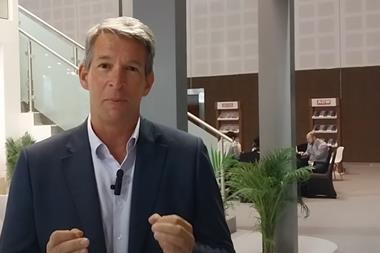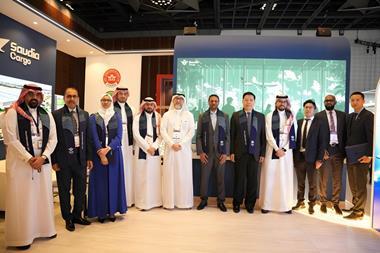
Source: dnata
dnata’s new 20,000m² cargo facility in Erbil, Iraq, is due to become operational in July
Aviation services provider dnata is to highlight three major logistics facility developments as part of its programme of global infrastructure investment worth more than U$110m during this week’s IATA World Cargo Symposium (WCS).
dnata executives will also take part in numerous discussions at the WCS, sharing their views on innovation, digital infrastructure and how the industry can move towards greater operational and environmental efficiency.
Cargo facility improvements
Infrastructural developments in the Netherlands, the UAE and Iraq are all set to go into operation this year.
Clive Sauvé-Hopkins, dnata’s chief executive for airport operations, observed: “As supply chains evolve and customer expectations shift, we’re focused on investing in infrastructure that’s fit for purpose today and adaptable for tomorrow.
“Our latest investments prioritise automation, scalability and energy efficiency, enabling us to support our customers more effectively in a fast-changing logistics environment.”
The three new dnata cargo facilities have all been designed to reduce the need for manual handling processes, facilitating scalable automation, while also enabling improved real-time visibility.
Their modular architecture allows for future technology upgrades and operational flexibility, dnata said, while integrated sustainability features will help drive long-term energy efficiency and reduce environmental impact.
In Amsterdam, dnata is investing more than $70m in a 61,000m² fully automated cargo centre at Schiphol Airport.
Due to open its doors in July, dnata Cargo City Amsterdam facility will be able to process more than 850,000 tonnes of cargo a year. It will be equipped with automated storage and retrieval systems (ASRS) and automated guided vehicles (AGVs) for flexible, scalable ULD movements within the terminal.
dnata Cargo City Amsterdam will also offer full air waybill (AWB) control across the facility. Operations will be centrally managed through dnata’s Cargo Control Centre, with live process visibility for real-time coordination.
Smart gates will automatically record the volume and weight of all incoming consignments using 3D scanning and a fork-lift guidance system is expected to support the optimised movement of cargo within the warehouse.
In Erbil, dnata is building a 20,000m² cargo facility in a project costing $15m. The new site is also scheduled to become operational in July.
The facility will increase dnata’s annual handling capacity in Iraq by 300% to 66,000 tonnes. It will feature dnata’s OneCargo digital system which automates key business and operational functions, including safety and quality monitoring, reporting and ULD management, through an integrated, cloud-based platform.
Finally, dnata Logistics is developing a new 57,000m² cargo centre at Dubai South in a $27m investment programme. Due for completion by the end of 2025, the facility will be able to handle up to 400,000 tonnes of cargo a year.
The fully temperature-controlled warehouse will feature a combination of very narrow and wide aisle racking, along with truck loading and offloading areas to offer maximum operational efficiency.
Sauvé-Hopkins remarked: “These projects are designed to deliver measurable gains in performance, traceability and resource efficiency.
“They form a key part of our long-term strategy to enhance service quality while building a more resilient, data-driven cargo operation.”
WCS
This year’s WCS in Dubai is being hosted by Emirates SkyCargo and dnata. The latter’s speakers at the event will include, as well as Sauvé-Hopkins: Carly Abbott, vice president, IT product delivery; Noor Salman, vice president, cargo business support; Guillaume Crozier, chief cargo officer; Syed Haris Raza, vice president of cargo, dnata USA; and Sam Gould, head of cargo services at dnata Singapore.
dnata provides ground handling and cargo services at more than 90 airports across 16 countries.
It handled a total of 2.9m tonnes of cargo during the 2023-24 financial year, 5 percent up on the previous year.












